Questions on Scientific Socialism
This question-and-answer format of a primer on Marxism-Leninism is the prepared text by Jose Ma. Sison for the fourth in a four-part series of webinars on his book, Basic Principles of Marxism-Leninism-Maoism. The webinar was conducted by the Anakbayan-Europa and the National Democratic Online School on 6 September 2020. The source of the text is from the Facebook public group, “ILPS Solidarity”, with minor typo corrections by PRISM editors. The video version can be watched on: https://www.youtube.com/watch?v=GSLZLR5vLO0.
Questions on Scientific Socialism
From the Host Seyra Rico, Anakbayan-Europa, ND-Line Online School
Answers by Jose Maria Sison, Author of Basic Principles of Marxism-Leninism-Maoism
6 September 2020
1. What is scientific socialism? You have stated three other forms of socialism: reactionary, conservative and bourgeois, and critical-utopian. How is scientific socialism different from them?
JMS: Scientific socialism is the theory and practice of the modern industrial proletariat for revolutionary class struggle to emancipate itself, together with other oppressed people, and become the ruling class in lieu of the bourgeoisie; to bring about and develop a society in which the means of production are under public ownership and planned production for the common good of the people rather than for the private profit of a few; and thereby to prepare the way for the classless communist society.
The Communist Manifesto, drawn up by Marx and Engels for the Communist League in 1848, laid down for the first time the comprehensive theoretical foundation of scientific socialism. Previous to this, socialism was a loose term referring to various trends of thought denouncing the abuses of the bourgeoisie on the proletariat and seeking to ameliorate the condition of the latter.
The Manifesto in its third section identifies three forms of socialism preceding scientific socialism: 1) reactionary; 2) conservative and bourgeois; and 3) critical-utopian socialism and communism.
The reactionary socialists included the feudal socialists, the petty bourgeois socialists and the German or “true” socialists. In common, they reacted to and opposed the new historical conditions brought about by the bourgeoisie and proposed some backward model of community, like the monastery or the guild system in feudal society. Marx and Engels regarded them as foolhardy and reactionary for wanting to turn back the wheel of history.
The conservative and bourgeois socialists included a number of economists, philanthropists and petty do-gooders who believed that the grievances of the proletariat could be redressed within the capitalist system and that anything good for the bourgeoisie was good for the proletariat. The proletariat was urged not only to stay within the bounds of bourgeois society but also to cast away all ideas of class struggle so that it can enjoy the bourgeois system as the New Jerusalem.
The critical-utopian socialists and communists included Henri St. Simon, Charles Fourier, Robert Owen and others who acknowledged the class antagonisms between the bourgeoisie and the proletariat but who could not as yet recognize the infant industrial proletariat of the early nineteenth century as a force capable of historical initiative or political movement.
So, they believed in their separate ways that individuals like them from the ranks of the educated could transcend the class struggle and invent some form of social organization into which the workers would spontaneously and gradually enter for their own good and for the sake of social harmony. They therefore appealed to the sense of charity and philanthropy of the bourgeoisie to either support or emulate their ideas and projects of class reconciliation.
St. Simon made the most panoramic proposal for the reorganization of society. He envisioned not only a new French society run by the industrialists, philosophers, physicists, chemists, astronomers, mathematicians and other men of modern scientific learning for the benefit of the poor and actual producers in society; but also a federation of European states run along the same line.
Followers of Fourier and Owen put up in America several isolated communities along the lines designed by their masters. So did the followers of the utopian socialists Cabet and Weitling who had previously experimented in France and Germany, respectively. All these experimental societies broke up under the pressures of the surrounding capitalist society.
Marx and Engels described the foregoing conceptions and projects as utopian building of castles in the air and fantastic pictures of the future of society, painted at a time when the industrial proletariat was still in a very undeveloped stage. But at the same time, they noted that these corresponded with the first instinctive yearnings of that class for a general reconstruction of society.
They pointed to the critical element that made the utopian socialist and communist publications full of the most valuable materials for the enlightenment of the working class. These criticized every principle of bourgeois society and in this regard proposed quite a number of practical measures such as the abolition of the distinction between town and country and carrying on industries for the account of private individuals; the conversion of the functions of the states into a mere superintendence of production; and so on.
At the time of Marx and Engels, the socialists and communists of the utopian kind had degenerated into narrow religious sects, pedantically repeating the outdated writings of their departed masters, fanatically opposing political action by the workers and becoming more reactionary as the very conditions for socialism became apparent. They could not keep pace with the growth of the proletariat and the development of historical conditions.
Engels’ Socialism: Utopian and Scientific (actually a section of Anti-Duhring) elaborates on scientific socialism as the diametrical opposite of utopian socialism. Marxist socialism is scientific because it analyzes capitalism and grasps the law of motion that leads to its socialist transformation. Of all pre-Marxist forms of socialism, utopian socialism came closest to the yearnings of an infant industrial proletariat but fell far short of the theory of scientific socialism.
Scientific socialism was formulated at a time that capitalism had developed sufficiently to reveal not only its past and present but also its future. The very growth of modern industry and the proletariat could already be observed as contradictory with the capitalist relations of production. As the forces of production grew, the capitalist mode of production became increasingly marked by crisis. The Communist Manifesto avers that capitalism creates its own gravediggers—the proletariat and modern industry.
The most incontrovertible proof for Marxist socialism as a scientific theory is the series of victories that the proletariat has achieved under its guidance. Socialist revolution and construction succeeded in the Soviet Union, China and other countries until modern revisionism was able to subvert socialism and restore capitalism.
2. What is class dictatorship? Why is that a main requirement for the establishment of a socialist society?
JMS: The chief overall requirement for the establishment of a socialist society is the class dictatorship of the proletariat. This simply means that state power must be in the hands of the proletariat as the ruling class in order to ensure socialist democracy for the proletariat and the entire people.
Marxism or scientific socialism frankly admits that the proletariat or socialist state is a class dictatorship, unlike the bourgeoisie which misrepresents its own state power or class dictatorship as a supraclass instrument for the common good of all classes, groups and persons. As a class dictatorship, the socialist state is definitely turned against the bourgeoisie and other enemies of the people. The coercive apparatuses of the state are used to guarantee, consolidate and defend the workers’ state and the people’s democratic rights, socialist revolution and construction against internal and external enemies.
The socialist revolution deprives the bourgeoisie of its political power and its private ownership of the means of production. The determination of the bourgeoisie to retain these or, upon defeat, to recover these can never be underestimated. Before a socialist society can be established, the bourgeoisie does everything in its power to prevent the victory of the proletariat. The armed strength of the proletariat at the inception of its rule is maintained and developed in the face of persistent threats from the domestic and international bourgeoisie.
3. Can democracy be practised within a society with a class dictatorship of the proletariat?
JMS: The class dictatorship of the proletariat against the exploiting classes means at the same time a socialist democracy for the proletariat and all other exploited people who have emancipated themselves. Without being able to put reactionaries and counterrevolutionaries in their proper places, the proletarian state would be incapable of guaranteeing democracy for the entire people.
The socialist constitution expressly upholds the class leadership of the proletariat on the basis of its alliance with all other democratic forces, like the peasantry, the petty bourgeoisie and others in the process of socialization. Decisive practical measures to favor the formerly exploited classes are spelled out in such a constitution. The Bill of Rights of the socialist constitution guarantees the basic rights and fundamental freedoms of individuals, groups, local communities, sectors, the former exploited classes and the entire nation.
The best of bourgeois liberal constitutions completely refrains from pointing to the existence of classes and class struggle. It deliberately uses abstract and universalistic references to individual rights, without class distinctions of any kind, in order to cover up and promote the effective legal right and freedom of the exploiting classes to exploit the great masses of individuals belonging to other classes and accounting for more than ninety percent of the population.
4. How necessary is armed struggle in obtaining class dictatorship? And when is a country ripe for armed struggle?
JMS: Armed struggle is necessary because the ruling bourgeoisie will never give up its state power and private wealth voluntarily and give way peacefully to the proletariat and people who are determined to build socialism. In either capitalist or semifeudal country, armed revolution is justified and is likely to succeed when objective conditions favor it and the subjective factors of the revolution are strong enough.
In the process of waging armed struggle, the proletariat forms the revolutionary army which is the main component of state power. This army defeats the reactionary army and allows the proletariat and the people to build both the civil bureaucracy and the military machinery of the class dictatorship of the proletariat. This class dictatorship is the workers’ state which defends itself, the people and socialist society from the attempts of the bourgeoisie to subvert or overthrow it.
In a semicolonial and semifeudal country like the Philippines, the people’s democratic revolution with a socialist perspective must win victory first before commencing the socialist revolution under the auspices of the people’s democratic republic at the core of which is the proletarian class dictatorship. Even in an industrial capitalist society, the proletariat must first win the struggle for democracy before it can conduct armed revolution to seize political power.
In an industrial capitalist country, objective conditions are ripe for armed struggle when the crisis of the ruling system disables the ruling class from ruling in the old way and the subjective forces of the revolution are strong enough to carry out uprisings to disintegrate and dismantle the reactionary army and other coercive apparatuses of the state. So far in history, the industrial capitalist countries have been most resistant to armed revolution, unless they engage in war among themselves and conditions arise for a revolutionary uprising like the Paris Commune of 1871.
Under the conditions of the inter-imperialist World War I, the Bolsheviks seized power through uprisings in the cities of Petrograd and Moscow but the fighting shifted to the countryside in the civil war and in the war against foreign intervention after the uprisings in Petrograd and Moscow. In semicolonial and semifeudal countries which are stricken by chronic crisis, the proletarian revolutionaries can avail of the vast area of maneuver in the countryside to wage a protracted people’s war. This is well proven in the history of China and other countries
Objective conditions refer to the situation when the political and economic crisis of the ruling system becomes so serious as to violently split the ruling class and prevent it from ruling in the old way. Factions of the ruling class fight among themselves. The ruling clique engages in open terror against a wide range of people and is extremely isolated. The people in general, including those unorganized, are disgusted with the system and are desirous of changing it.
The subjective forces of the revolution refer to the conscious and organized forces of the revolution. These are the revolutionary party, the mass organizations, armed contingent, and so on. To gauge their strength fully, one has to consider their ideological, political and organized status and capabilities. The armed contingent of the revolution may be small at the beginning but the process of armed revolution can destroy and disintegrate a far larger reactionary army.
The objective conditions are primary over the subjective factors. The former arise ahead of the latter and serve as the basis for the development of the revolutionary forces. The Communist Party cannot really be accused of inventing or causing the political and economic crisis of the bourgeois ruling system. The crisis arises from the internal contradictions of the ruling system. The armed revolution arises from the crisis conditions, the escalating conditions of oppression and exploitation and the eventual necessity of the people’s resistance.
5. Different countries have different socio-political situations. You have described the Philippines as semifeudal and semicolonial. Can you describe what this means? Why is the Philippines not capitalist?
JMS: The terms semicolonial and semifeudal describe Philippine society. Semicolonialism is a distinctly political term that refers to the lack of full national independence of the Philippines and to the continuing control of the Philippines by the US and its imperialist allies. It is a longstanding term from Lenin who spoke of colonies, semicolonies and dependent countries being subordinate to the imperialist powers.
Like the term semicolonialism, semifeudalism comes from Marxist-Leninist literature describing the Chinese economy before the victory of the Chinese revolution in 1949. It is used to describe economies that have long been dominated by the commodity system of production and no longer by a natural economy of feudalism. But it is a merchant bourgeoisie rather than an industrial bourgeoisie that is the chief ruling class based on land ownership or in partnership with the landlord class.
If you wish, you can use the expressions semifeudal capitalism or big comprador capitalism to denote the economic dominance of the comprador big bourgeoisie in the Philippine economy. It is wrong to mean or insinuate that the Philippines is already industrial capitalist when one says that it is capitalist and not semifeudal. The Philippines still imports its capital equipment from the industrial economies.
Semifeudalism is a precise term with a definite content. It is a kind of a nonindustrial or pre-industrial and agrarian economy in which the comprador big bourgeoisie has arisen as the wealthiest and most powerful exploiting class from feudal haciendas as resource base for exports and in combination with the landlord class. Influenced by bourgeois economists, right-wing social democrats and Trotskyites, some people think that it is a term that has never been valid or has outgrown its validity.
They think that an economy has to be exclusively feudal or capitalist. They do not understand that in world history capitalism grew out of the womb of feudalism, first in the form of the handicraft business, some light manufacturing and the merchants trading between town and country before industrial capitalism surged forth as the dominant form of capitalism with the steam engine and then with the electro-mechanical equipment.
Semifeudalism is a term that refers to a kind of economy that evolved from feudalism and became starkly conspicuous in the 20th century in the Philippines with the rise of the comprador big bourgeoisie as the chief exploiting class in collaboration with the landlord class. Big compradors have long been big landlords who base themselves on their large landed estates and use these to produce crops for export in exchange for the importation of finished products from abroad.
The big comprador Ayala family and related families have not only owned banks and trading companies but have also owned or managed big landed estates in Calatagan and Nasugbu, Batangas and elsewhere since the beginning of the 20th century. In recent times in the 21st century, the recently deceased Eduardo Cojuangco owned the United Coconut Planters Bank and came to own the gigantic big comprador firm San Miguel Corporation but he also owned some twenty haciendas in various provinces in the Philippines (Tarlac, Pangasinan, Isabela, Negros, Palawan, Agusan, Albay and so on).
6. The CPP is waging a two-stage revolution. Why is a bourgeois-democratic revolution necessary for a semifeudal country in order to advance to socialism? Is it not possible to advance to socialism without this stage?
JMS: It is necessary to carry out first the new type of bourgeois-democratic revolution or otherwise called the people’s democratic revolution with a socialist perspective and under the leadership of the proletariat because the semicolonial and semifeudal conditions require that you must fight and defeat the forces of foreign monopoly capitalism, domestic feudalism and bureaucrat capitalism. In the course of waging the people’s democratic revolution, the proletariat builds the people’s army, the revolutionary mass organizations, the national united front and the local organs of political power which constitute the provisional revolutionary government.
When political power is seized by the proletariat from the reactionaries and thereby the people’s democratic revolution is basically completed, then the socialist revolution can commence immediately with the use of the proletarian dictatorship for seizing the commanding heights of the economy and securing the country and people from any further attacks from the imperialists and the reactionaries. Socialism is impossible and is not the immediate issue under conditions where the proletariat and the people are still under foreign and feudal domination and must first end this through people’s war along the line of the new type of bourgeois-democratic revolution.
7. How will the dictatorship of the proletariat be achieved after a bourgeois-democratic revolution?
JMS: In the course of the bourgeois-democratic revolution of the new type or what I have been calling the people’s democratic revolution, the apparatuses of the class dictatorship of the proletariat or the worker’s state are built. By the time that the bourgeois democratic revolution is basically completed through the seizure of political power, these apparatuses of state power shall already be well-developed in the hands of the proletariat even as the proletarian dictatorship may take the form of people’s democratic dictatorship in a transition period.
In the course of the people’s war, the people’s army is developed by the proletarian revolutionary party as the main component of the future workers’ state or what may be otherwise called class dictatorship of the proletariat. The people’s militia is also developed as the police force. The system of people’s courts is developed. The organs of political power learn to prosecute, try, judge and detain or punish those proven or convicted as counterrevolutionaries and other criminals according to law.
8. Let us talk about socialist economy. Can you talk about the main changes that need to be made from capitalist to socialist economy?
JMS: The socialist economy has been made possible in world history by the growth of modern industry and the proletariat in industrial capitalism. These forces of production outgrow and rend asunder the capitalist relations of production which have become their fetters. They therefore become liberated and can grow at an accelerated rate.
In a socialist society, social or public ownership of the means of production replaces private ownership. The new relations of production are made to correspond to the social character of the means of production. The entire mode of production is revolutionized. The proletariat uses its political supremacy to wrest step by step all capital from the bourgeoisie, to centralize all instruments of production in the hands of the state, and to increase the total productive forces as rapidly as possible in a planned way.
The Communist Manifesto lists down a number of measures for revolutionizing the mode of production in the most advanced countries but at the same time points out that these measures will be different in different countries. The experiences of the Soviet Union and China in carrying out socialist revolution and socialist construction are the best historical examples to study and learn from.
Marx’ Critique of the Gotha Program shows how the total product of society is divided. There are the funds for 1) wages; 2) capital reproduction; 3) public welfare; 4) administration; and 5) defense. The wage system is retained but the essential difference between capitalism and socialism in this regard is that there are no more gross disparities in income and that the average level of income is deliberately made to rise above mere subsistence level and is planned to rise ever higher. The surplus product (above wages) is no longer appropriated as private income by any exploiting class but used for capital reproduction, public welfare, administration and defense.
9. Can you explain more the concept of “from each according to his ability, to each according to his deeds” among the working people and the government and economic officials?
JMS: In the payment of wages, the principle to be followed is “from each according to his ability, to each according to his deeds.” There are wage or salary differentials according to differences in productivity. A manager or an engineer will still get a higher wage than a skilled worker; and the latter will get a higher wage than an unskilled worker or apprentice.
For a certain period, the industrial proletariat will get higher wages and more benefits than the peasants but the latter will soon be benefited by collectivization and mechanization. At the very start, steps are taken to remove the gross disparities in income in the old society. The long term objective is to remove gross disparities in incomes that result in class differences and to keep on raising the general level of the incomes and the quality of life.
Certainly, the extremely high salaries for high government officials and high executives of the state and private corporations in the past will be immediately ended. They are reduced in line with the state policy of spreading the available social benefits and mustering the resources for further socioeconomic development, instead of favoring the few bureaucrats and technocrats as in the past when they were coddled by the big bourgeoisie and landlords to assist them in oppressing and exploiting the people.
But the government and economic officials shall be provided with salaries commensurate to their education, training and contributions. They can gain new motivation and new morality from socialist education. It is good policy to treat them fairly and justly and win them over to the socialist revolution. Otherwise they will emigrate and it will be more costly to hire foreign experts.
10. How will the economic planning be different from the economic planning during capitalism?
JMS: National economic planning takes the place of the conflicting calculations by various private firms on the basis of the capitalist market. Production is for use rather than for private profit. The most essential and necessary commodities and projects are given priority. The internal balanced and self-reliant development of the socialist economy is carried out.
With social profit taking the place of private profit, a tremendous and ever-increasing amount of the surplus product is released every year for the reproduction of capital. Such ills endemic to capitalism, such as the motive of private profit against social need, misallocation of resources, the anarchy of competition, conspicuous consumption, the business cycle and excessive military expenditures are done away with.
Economic planning is effective because all economic factors are under unified control and all active components of the economy at all levels report the information and recommendations to serve as basis for the plan. An economic plan is the result of the open interaction between the central planning body and lower levels. National goals are related to available resources and actual capacities.
Economics acquires the precision of an applied science. In a capitalist society, economics as well as economic planning is really a far more imprecise field of knowledge and is often a guessing game as the individual capitalist firms keep from each other and from the public the timely and accurate information on production, trade, technical and other data and process which they consider trade secrets in the name of private ownership and competition. Only partial information is given publicly by private firms when it serves their ends.
11. Defense will be an important concern in a socialist society. Will the cost be as huge as during capitalist society?
JMS: Defense is a necessary concern in socialist society. Without defense, socialist society would be destroyed by its internal and external enemies. But the cost of defense in such a society is relatively far, far smaller than in capitalist society. Especially in the case of imperialist powers, their military expenditures are astronomical in magnitude. Worst of all, the police and military forces are used for the purpose of repression and aggression.
The military policy of a socialist state is truly defensive and is opposed to aggression from its own side or from another. The military forces are built according to the principles of the people’s army. In connection with the economy, military units are actually productive units, aside from being military, political and educational units. Periodically beefing up the standing army, the youth are rotated into military service and training. The people in general are politicized and trained as militia units and are not detached from production.
The people’s defense is their own home base strength against the aggressor and it is further strengthened by proletarian internationalism, international solidarity with all other peoples and diplomacy and friendly relations with other states and countries on the basis of mutual respect for independence, equality, mutual cooperation and benefit.
12. Can concessions be given to capitalists in a socialist economy? If so, how do we make sure they don’t grow and dominate the economy? Maybe you can give us examples from China’s experiences.
JMS: After the people and the people’s army led by the revolutionary party of the proletariat defeat the enemy and take power, the workers’ state or the people’s democratic state takes over the commanding heights of the economy such as the existing industries, lines of transport and communications and sources of raw materials.
But conditions might require that transition measures are taken in order to revive the economy as soon as possible and to avail of what positive contributions can be made by the rich peasants, traders, the middle bourgeoisie as in the New Economic Policy under Lenin and even the big compradors who are required to follow the example of the national bourgeoisie in joining state-private corporations and thereby complying with state policy.
Lenin adopted the New Economic Policy (NEP) in order to revive the economy as soon as possible after the devastation resulting from the civil war and by the war of foreign intervention. Thus, the rich peasants and small and medium entrepreneurs and traders were allowed to operate from 1922 to 1928. Stalin ended the NEP to launch the first five-year plan to build socialist industry and carry out the collectivization and mechanization of agriculture.
In much of its first decade, China also had a transition period of overcoming war damage, inflation and corruption, supporting the Korean people and combatting US aggression and basic socialization of the economy. This was accompanied by the operation of joint state-private corporations to integrate and absorb the capital of the bourgeoisie. Payment of dividends was phased out after a number of years.
In the Soviet Union, the bourgeoisie resurged from the ranks of the private entrepreneurs, traders and rich peasants during the New Economic Policy. But this social stratum came under restraint when Stalin launched the policy of socialist industrialization and the collectivization and mechanization of agriculture. Then the Left Opposition of Trotsky arose to push the bourgeois line that socialism was impossible in one country, and the Right Opposition of Bukharin pushed the other bourgeois line that the New Economic Policy must continue and that capitalist concessions must be further carried out.
In China, Liu Xiaoqi and the like pushed the bourgeois line in the late 1950s that the “national democratic economy” must first be developed before there is ground for socialism and that the national capitalists must not be phased out but further given concessions. They also opposed the Great Leap Forward which was planned to counter the natural calamities, the imperialist embargo and the Soviet Union tearing up previous agreements and contracts with China due to the Sino-Soviet ideological dispute. Under Mao’s leadership, China prevailed with the socialist line over the Chinese revisionists and capitalist roaders who persisted until the Great Proletarian Cultural Revolution became necessary in 1966.
In the process of socialist revolution and construction, the Communist Party as advanced detachment of the proletariat issues the principles and policies to prevent bureaucratic corruption and to have a definite plan for phasing out concessions given to the capitalists, to keep on advancing the socialist revolution and construction and develop socialist education, culture and morality. We must learn from the errors of Stalin in declaring prematurely the end of classes and class struggle in 1935 and mishandling class contradictions within socialist society and depending on administrative measures.
We must also learn from Mao’s theory and practice of cultural revolution under proletarian dictatorship in order to combat modern revisionism, prevent the restoration of capitalism and consolidate socialism as well as from the errors of the Chinese CP of allowing the return to power of revisionist renegades like Deng Xiaoping who pretended to have been rehabilitated. The danger to socialism comes not only from the imperialists but also from internal elements who are remnants of the old bourgeoisie or who emerge in socialist society by first adopting the petty bourgeois mode of thinking while they are in school and then climbing their way to higher positions in the Party, state, economy and cultural institutions while becoming revisionists and bourgeois.
13. Previously socialist countries have turned into or become imperialist countries in history. Where do we draw the line between a leading party that is still pushing for a socialist cause and a party that is transforming into an imperialist one?
JMS: When the modern revisionists take over power in a socialist country as in the Soviet Union from 1956 onwards, they make breaches on the socialist system in order to introduce capitalist reforms supposedly to strengthen socialism as Khrushchov did. By the time of Brezhnev, his own pack of modern revisionists turned social-imperialist and centralized resources to enlarge bureaucratic corruption and to engage in the arms race with the US as the other superpower in the Cold War.
Khrushchov made his counterrevolutionary revisionist coup in the Soviet Union after the death of Stalin. So did Deng Xiaoping in 1976 after the death of Mao. He declared the GPCR as 100 per cent catastrophe and proceeded to adopt the line of outright capitalist reforms and opening up to the capitalist world. He made China the main partner of US imperialism in carrying out the neoliberal policy of imperialist globalization. China became an imperialist power.
For a while Mao’s theory and practice of continuing revolution under proletarian dictatorship through cultural revolution gave hope to proletarian revolutionaries and won most of the time through twists and turns in the ten-year course of the GPCR from 1966 to 1976. While the GPCR posed correctly the problem of modern revisionism and unfolded the basic principles and methods for combating revisionism, still the revisionist capitalist roaders headed by Deng were able to defeat the GPCR, restore capitalism and make China an imperialist power.
The defeat of the GPCR, which spelled the victory of capitalism in China over socialism, only means that we need to learn positive and negative lessons from the entire process of socialist revolution and construction up to the end of the GPCR in China in the same way that proletarian revolutionaries learned positive and negative lessons from the victory and defeat of the short-lived Paris Commune of 1871 and from the much longer life and greater consequentiality of the Soviet Union.
14. How will the transition from socialism to communism take place?
JMS: With regard to the transition of socialism into communism, Marx and Engels prognosticated the withering of the state, the emergence of classless society, the massive and rapid growth of productive forces and the all-round development of human civilization.
The withering of the socialist state or class dictatorship of the proletariat means the steady dissolution of the coercive character of political authority. By then, there shall have been a lessening and finally a disappearance of the need for a distinct class, the proletariat, to hold in check another class, the bourgeoisie, with the use of the coercive apparatuses of the state like the army, police, courts and prison.
The advance of socialism, especially in its mode of production, is expected to dissolve the very conditions that create such antagonistic classes as the proletariat and the bourgeoisie. A generalization and equalization of conditions occur for the benefit of one and all. It is not an impossible dream to anticipate the growth of productivity to the point that all members of society need to work for a far lesser number of hours than now, have a basic income that assures a comfortable and productive life and have more time for other creative endeavors in private and in public.
One knows exactly how the bourgeoisie is differentiated from the proletariat in capitalist society. By their right of ownership in the means of production and by extracting profits for themselves, the bourgeoisie lives a more comfortable and even luxurious life while the proletariat is consigned to the drudgery of a long daily work routine and the rough conditions of poverty and misery. Certainly, one cannot fail to see the benefits derived by the working class by succeeding through struggle to reduce the working day progressively from sixteen hours to eight hours, although the worker still remains exploited in capitalist society.
The attainment by all of the material conditions enjoyed by an educated middle class family relying on high salaries and not on private ownership of the means of production is not an impossibility. While this is an impossibility for the working class under capitalism, socialism can bring this about because the growth of productive forces and all-round social development are no longer restricted as in capitalism and are enhanced by the rapid advance of science and technology, provided the monopoly capitalist attack on the environment is prevented.
Modern industry is capable of wiping out poverty overnight. But capitalism would rather manipulate and restrict the forces of production in order to exact a high rate of profit. Marx pointed out clearly the problems that socialism in transition to communism would have to solve. These are the contradictions between the vestiges of the past and the new socialist society, between town and country or industry and agriculture and between mental and physical work.
The contradictions between the vestiges of the past and the new socialist conditions can be solved by further developing the achievements of socialist revolution and construction. The contradiction between the town and country or industry and agriculture can be solved by bringing mechanization and the amenities of urban life to the countryside and building smaller cities integrated with rural life. The contradiction between physical and mental work can be solved by expanding educational and other cultural facilities, increasing real wages and reducing the workday for all.
Since Marx, it has been generally understood that the mode of production can be developed to such a point that the income of producers will no longer be decided according to their productivity. There will be such a superabundance of public facilities and articles of consumption that it will become impertinent for anyone to talk or think of being deprived and disadvantaged regarding these things.###
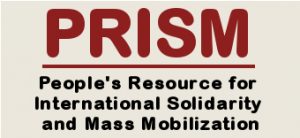
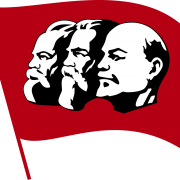
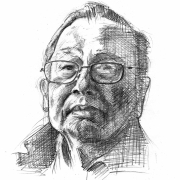
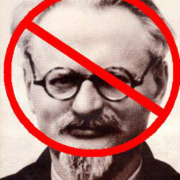
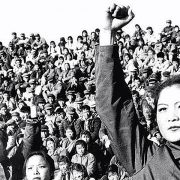
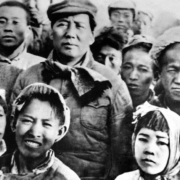
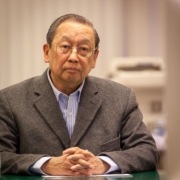


Leave a Reply
Want to join the discussion?Feel free to contribute!